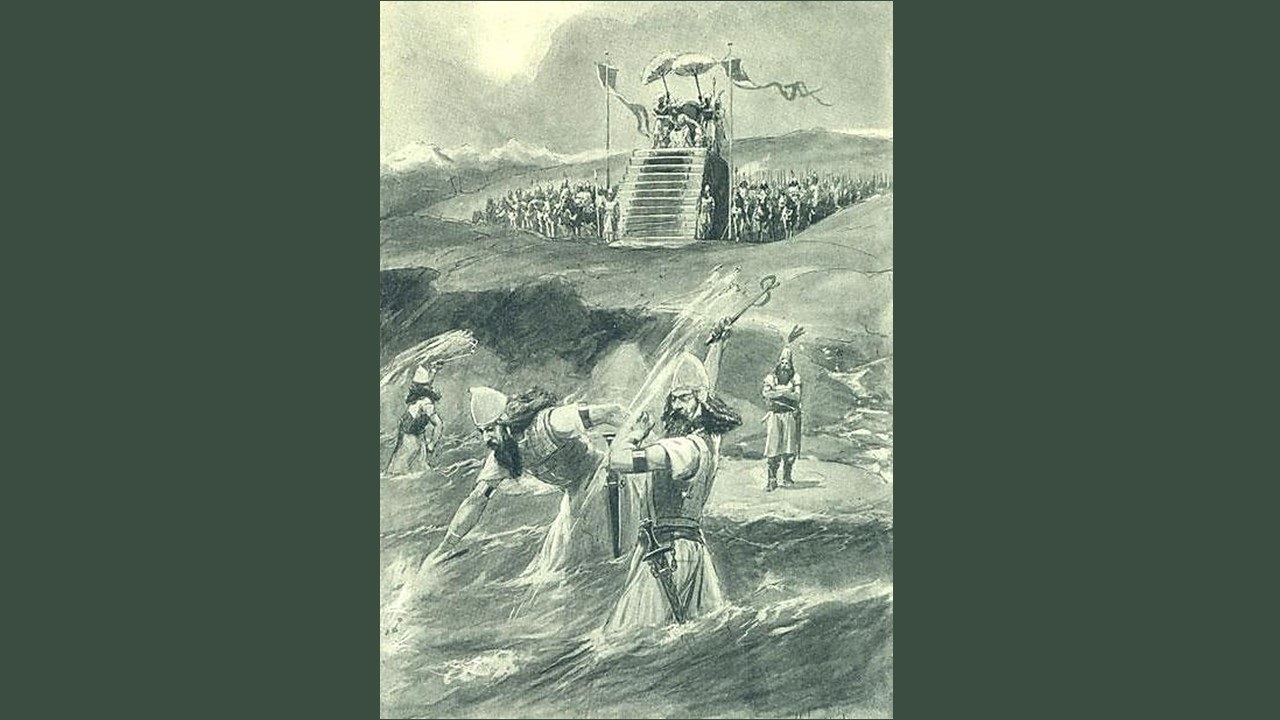.
Xi
When Xerxes saw his bridge of boats which spanned
The Hellespont destroyed, forthwith he laid
Fetters of iron on the waves and flayed
With whips the surf which had him dared withstand.
So Gaius, too, seeing Britannia’s land
Beyond his dreams of conquest, sent his hordes
To stab and swing at Neptune with their swords
And spoil him of his scallops on the sand
And when Xi Jinping seeks for victory
He fires ballistic missiles at the sea,
As though it were impressed in any sense
By one more act of human impotence.
Our fault it is our undertakings fail,
For which at nature or our gods we rail.
.
.
In the Market Square
Early this afternoon I was in town,
Dealing with some mundane and dull affair,
And, on my busy journey up and down,
Ran into Cupid in the market square.
The god, accosting me, since I was there,
Showed me a vision where I chanced to look
Of features, vigour, form and virtue rare
And then produced a raffle-ticket-book,
Saying, “Her charms whose face just now you saw
Are prizes for the winner of the draw.
This ticket costs your heart and your estates,
The hours of life you borrowed from the Fates,
Your hopes and your capacity for thought
And is the thousandth ticket to be bought.”
.
.
Morrison Handley-Schachler is a Chartered Public Finance Accountant and Lecturer in Accounting. He has a doctorate in Ancient History and has published articles on ancient Persian history, accounting history, financial crime, auditing and financial risk management. He lives in South Queensferry, on the outskirts of Edinburgh, Scotland.















“Xi” is artfully compared to those who believe power can be achieved by demonstrations of their might in order to inflict beliefs of impending doom upon a target people or nation(s). You made substantial historical comparisons and cultural beliefs that perfectly reflect modern applications of virtual force. I think I need to visit that “market square!”
Thank you for kind comments, Roy. I was quite struck by the parallels between Xerxes and Xi Jinping. Human beings do not seem to change much over time. The market square is recommended to the brave.
A thought-provoking parallel between the two Xs, and I loved naughty old Cupid’s ruse.
Thanks for the reads, Morrison.
Glad that you enjoyed the two poems, Paul. Where delusions of power are concerned there is nothing new under the Sun. And the price of hope in Love is an old story as well.
I find both poems very entertaining and enjoyable. The first one for its historical and human psychology observations, and the second one for its dry sense of humor in response to the human psychology.
Thank you very much for your comments, Yael. I’m glad you were entertained and appreciated the humour.
Both poems are quite good, but I am more impressed by the slick competence of the god of love “In the Market Square.” It inspires one to wonder whether the vision he shows is real, and why so many are apparently willing to pay the price. In life, we do indeed find the reality behind the vision rare, but just as rare are the men sincerely willing to pay what is asked for it. The form of the sonnet displays disjunction. The octave begins as the most difficult Spenserian or Scottish type, and the sestet concludes as a couplet sonnet, a kind that is more common than we generally think, but usually less valued for its artistry. Here I find you make superb use of the entire sonnet to describe love as a transaction that involves disappointment and compromise in most cases, but remains satisfactory in many.
Thank you very much for your observant comments, Margaret. The question of how real the vision is remains open. I like writing in the sonnet form and found that the use of rhyming couplets in the sestet made for a more emphatic finish.